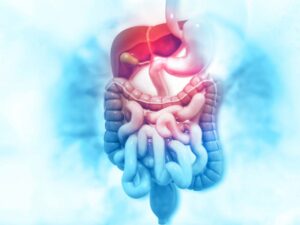Neurogenic Bowel Treatment
Already know that you have neurogenic bowel and enema is not working for you?
Fill out this quick 5-question form to see if you qualify for the PIE Device?
Learn more about Neurogenic Bowel
First off, what is Neurogenic Bowel?
Neurogenic bowel is a condition that affects the muscles in the digestive system. It can occur when there is damage to the nerves that control these muscles. This can lead to problems with bowel movements, including constipation, diarrhea, and incontinence (losing control over bowel movements).
Neurogenic bowel is often associated with medical conditions that affect the nervous system, such as spinal cord injuries, multiple sclerosis, and spinal bifida. It can also be a complication of surgery on the pelvis or lower spine.
What are the Complications of Neurogenic Bowel?
Problems with bowel movements can lead to complications, such as:
- Constipation: This is when it is difficult to have a bowel movement and stools are hard and dry. It can be painful and cause discomfort.
- Fecal Impaction: This is when stool builds up in the colon. It is often a result of chronic constipation and neurogenic bowel.
- Diarrhea: This is when a person has frequent, loose stools. It can lead to dehydration and nutrient deficiencies.
- Incontinence: This is when a person loses control over their bowel movements and has accidents. It can be embarrassing and cause skin irritation.
How do I Diagnose Neurogenic Bowel?
If a person is experiencing problems with their bowel movements, they should see a doctor. The doctor will ask about the person’s medical history and do a physical exam.
Most doctors will diagnose neurogenic bowel without any tests. However, sometimes they may order tests, such as a colonoscopy (a procedure to look inside the colon), x-rays, or a CT scan (a type of imaging test) to confirm there are no other problems.
How is Neurogenic Bowel treated?
There are a few different ways your doctor can help you manage neurogenic bowel. Here are some treatment options listed from least invasive to most invasive.
- Increasing Fiber and Fluid Intake: Eating more fiber and drinking more fluids can help your stools be softer and easier to pass. Your doctor may recommend a high-fiber diet or fiber supplements.
- Bowel Training: This involves establishing a regular routine for bowel movements and using techniques such as abdominal massage and digital evacuation (manually removing the stool) to help empty the bowel. Bowel training may be used in combination with medication and other treatment options.
- Medications: Medications are often the first line of treatment for neurogenic bowel. They can help to soften the stool, increase bowel movements, and reduce constipation. Commonly used medications include laxatives, stimulants, and anti-inflammatory agents.
- Laxatives are drugs that help to soften the stool and stimulate the bowel to move. Stimulant laxatives work by stimulating the muscles in the intestine to contract and move the stool through the bowel. Bulk-forming laxatives absorb water in the intestine to increase the volume of the stool and promote bowel movements.
- Stimulants stimulate the muscles in the intestine to contract and move the stool through the bowel. Anti-inflammatory agents reduce inflammation in the intestine and may improve bowel function.
- Assistive Devices: There are several assistive devices available for managing neurogenic bowel, including enemas and suppositories. These are inserted into the rectum to soften the stool and stimulate the bowel to move. They can be used on an as-needed basis or as part of a regular bowel management routine.
- Pulsed irrigation evacuation (PIE) Device: The pulsed irrigation evacuation (PIE) device is an FDA-cleared device that uses pulses of water to clean out the bowel. It is a safe, reliable, and effective way to help people who are not able to get proper relief with laxatives or enemas. This is the best option for people trying to avoid having a bowel resection or colostomy surgery. To see if you qualify, click the button below:
- Surgery: In some cases, surgery may be necessary to manage the neurogenic bowel. Options may include bowel resection (removal of a section of the intestine) or the creation of a colostomy (an opening in the abdomen through which the stool is collected in a bag). Surgery is typically reserved for cases where other treatment options have not been effective or when there is a blockage in the intestine.
The true value of a bowel movement is only known when it is gone. However, neurogenic bowel does not mean that you have to suffer alone. With proper treatment, you can manage your neurogenic bowel and improve your quality of life.





